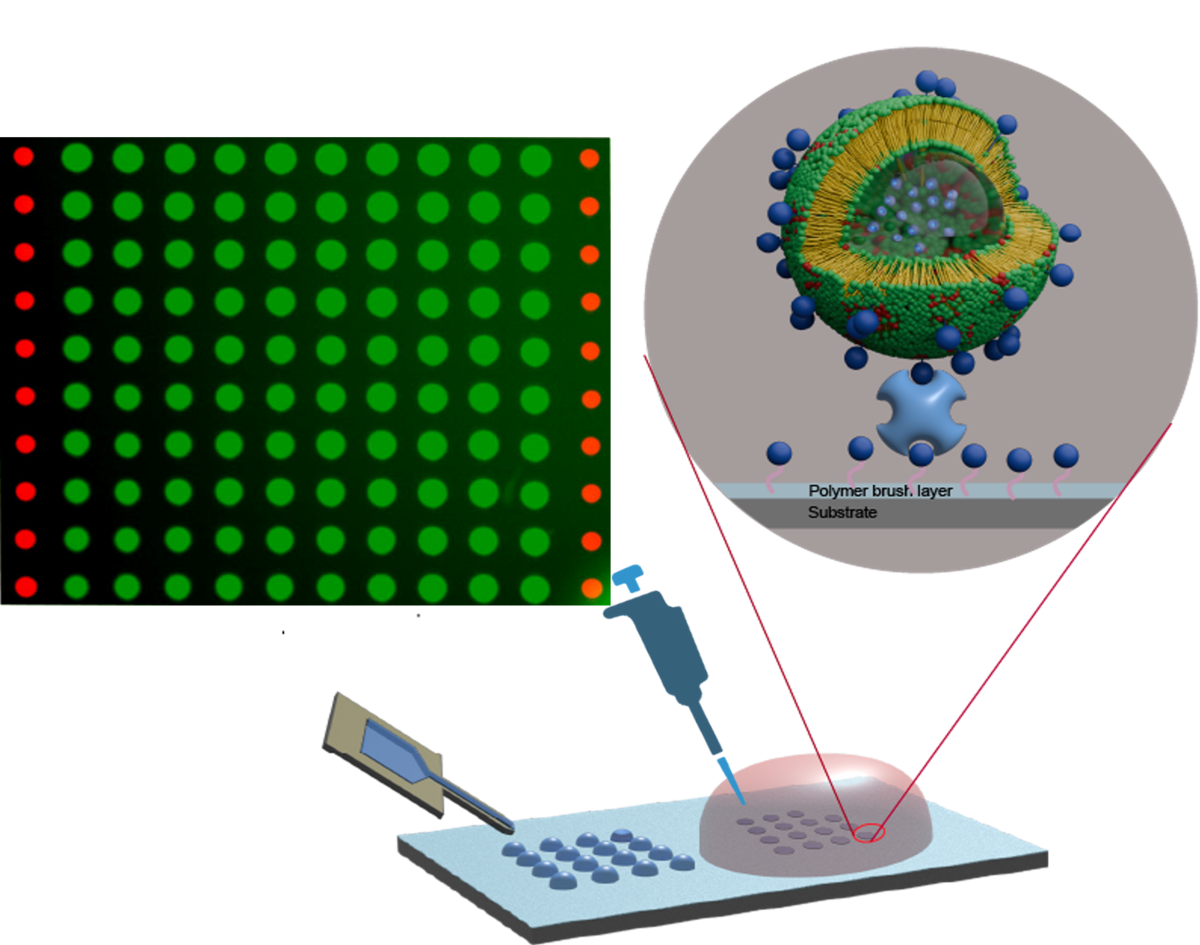
Stability of Immobilized Chemosensor-Filled Vesicles on Anti-Fouling Polymer Brush Surfaces
-
Author:
W. Yang, J. Xiao, B. Yang, G. Mathew, A. H. Schäfer, M. Hirtz
-
Source:
Adv. Mater. Interfaces 11 (2024) 2400200
- Date: 2024
-
The characterization of phospholipid membrane permeability for small molecules is crucial for many applications in drug discovery and biomedical research in general. Here, chemosensor-laden vesicles offer an attractive platform for permeability assays. In this work, the stability of immobilized chemosensor-filled vesicles is explored on anti-fouling polymer brush surfaces for potential use in monitoring small molecule membrane permeability. The study focuses on the development of a method for immobilizing sensor-loaded vesicles into arbitrary patterns on surfaces and characterizing their stability under changing temperatures and compositions. As substrate to enable intact, long-term stable vesicle immobilization reactive polymer brushes with anti-fouling properties are used. Utilizing microchannel cantilever spotting, biotin moieties are introduced on the polymer brush surface, enabling stable tethering of vesicles through streptavidin-biotin interactions. The immobilized vesicles are monitored through fluorescence microscopy for their response to analytes under changing environmental parameters and vesicle composition. A higher stability of immobilized vesicles compared to free-floating ones is observed, with permeability only at elevated temperatures. By tuning vesicle compositions, permeability at lower temperatures can be raised again. Overall, the study provides insights into a novel approach for vesicle immobilization, showcasing the potential of surface-bound vesicles for applications in microfluidic systems and as biosensors in various assays.
